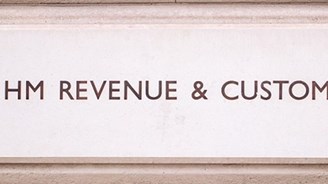Accountancy in 2022 - what is in store?

Inflationary pressures
A combination of supply chain pressure, soaring gas prices and higher food bills have forced inflation to rise. The Bank of England expects it to reach 6% in early 2022.
Businesses will come under pressure from a range of factors. These include higher energy bills, skills shortages, the increase in the cost of supplies and lower demand for products and services. Also, many will now need to repay the COVID loans that helped them survive through the pandemic.
Keeping inflation under control or affecting wholesale gas prices are beyond the remit of the accountancy sector. However, there are services that proactive accountants can provide to help clients through this tough period.
Cashflow and planning
Keeping an eye on cash is always important for any business. Against the current economic backdrop, poor cashflow management could contribute to driving companies under.
A well-developed cashflow projection will help businesses to prepare for shortages in advance. Good cashflow management will also help businesses to maintain adequate cash reserves for bills.
Accountants can also help with business planning, which will be vital now. Additionally, help with invoices and recovering payments may prove invaluable to many businesses.
From port congestion to freeports
Brexit has combined with the pandemic to slow down the trade coming through England’s ports. 1 January 2022 saw significant new compliance requirements on goods coming from the EU. Also, the government’s timetable pushes the start date of some new requirements into 2022. Navigating the rules for imports and exports needs considerable care. Accountants can play a key role in ensuring their clients continue to trade as seamlessly as possible.
This year is likely also see the government’s freeport programme moving forward at pace. This will bring new opportunities for businesses. Half of the eight sites designated as freeports have already seen the relevant regulations put in place. The regulations for the remaining four should follow shortly.
Freeports are specified geographical areas that allow certain benefits to businesses operating within them. The main VAT benefit is that businesses selling goods within free zones will be able to zero-rate their supplies. Services carried out on goods in those zones may also be zero-rated subject to conditions.
HMRC’s COVID crackdown
HMRC has begun the year by reminding businesses that they must declare any COVID-19 support grants or payments on their company tax returns. This looks to be part of a crackdown on those who made mistakes on while claiming the support schemes as well as those who claimed them fraudulently.
Given estimates suggesting £5.8 billion lost to error and fraud, it’s not surprising HMRC is investing in compliance. A Taxpayer Protection Taskforce of 1,265 staff is involved in post-payment enquiries.
The aim is to identify and recover amounts overpaid via support measures like furlough.
Risks range from problems stemming from payroll software to errors calculating pensions or salary sacrifice and National Insurance contributions. The position can be particularly complex where employees weren’t paid enough via furlough rules.
Accountants have an essential role to play in helping businesses look back over claims and making corrections.
Making Tax Digital
HMRC’s long march to a digital tax regime, known as Making Tax Digital (MTD), continues this year.
From April 2022, all VAT registered businesses must file digitally through MTD, regardless of turnover. So, time is running out fast for businesses below the £85,000 threshold to take the necessary steps take to be ready. Those who do not sign up will earn a penalty for failure to do so.
The next stage will be MTD for income tax. This was deferred until April 2024 for sole trader businesses and landlords with business income of more than £10,000 per annum. General partnerships will follow in April 2025, while Making Tax Digital for corporation tax will not be mandated before 2026.
This gives businesses valuable breathing space to prepare.
Calmer waters
The year ahead looks like it will navigate some choppy waters. We will be exiting the pandemic against a perilous backdrop, including high inflation, supply chain pressures and the need to stay compliant on tax and regulations. Accountants will be crucial in helping businesses steer to calmer waters in 2022.
Out Now
Accountancy Training Programme 2022
Explore the 2022 online and in-person events programme.





